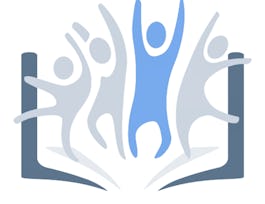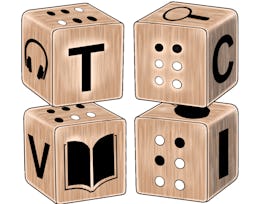Worldwide millions of children are not able to fully participate in schooling, and this is especially a problem for children with disabilities. In this course, we explore the support that teachers need in order to meet the needs of children with severe to profound hearing, visual and intellectual disabilities. We consider how this can be done by talking with a range of experts - from teachers to activists - about inclusive education as well as sharing experiences of education.


Disability Inclusion in Education: Building Systems of Support
Taught in English
Some content may not be translated
20,928 already enrolled
(594 reviews)
What you'll learn
To use disability inclusion principles to describe the support needs of learners with disabilities.
To identify the systemic support structures available to teachers within the education system.
To recognise the impairment specific support needs of learners with disabilities.
Skills you'll gain
Details to know

Add to your LinkedIn profile
10 quizzes
See how employees at top companies are mastering in-demand skills


Earn a career certificate
Add this credential to your LinkedIn profile, resume, or CV
Share it on social media and in your performance review

There are 5 modules in this course
This week, we consider what disability inclusion means by exploring different models of disability as well as disability rights and policies. Drawing from the history of special and inclusive education we look at how mainstream schools can move towards becoming inclusive schools and how special education can fit into an inclusive education framework. At the end of this week, there is a graded quiz, where you can check your understanding of the key concepts. Every week, you are invited to reflect on the topics in the discussions where you can talk with others about what this means for your practice as an educator.
What's included
8 videos3 readings3 quizzes2 discussion prompts
This week focuses on teacher empowerment and what teachers need to know to better support learners with disabilities. We begin by sharing with you what the Teacher Empowerment for Disability Inclusion (TEDI) project's research findings revealed about teachers’ educational needs. This week we hear powerful personal testimonies of individuals living with disabilities about their schooling which highlights the importance of the empowered teacher in their lives when they were learners. At the end of this week, there is a graded peer review and opportunity for reflection through discussion.
What's included
8 videos5 readings1 peer review1 discussion prompt
This week focuses on the systemic support structures that are available to teachers and educators in order to support learners with impairments. A former teacher and two district officers share their experiences of support structures and the roles they had to shape and implement policies within the spaces they found themselves in. We will also explore some insights from the TEDI research project on how teachers feel they are supported. At the end of the week, there is a graded quiz and optional Honours Peer Review assignment where you can explore these topics further.
What's included
9 videos2 readings3 quizzes1 peer review2 discussion prompts
This week discusses how to make the curriculum accessible for all - particularly focusing on those with severe to profound disabilities. This includes understanding some of the causes of specific impairments (hearing, visual and intellectual) and their impacts on learning. We also have the pleasure of learning from experts who outline which principles and approaches can be adopted to best support learners with these specific impairments. At the end of the week, there is a graded quiz where you can test your knowledge of what you have learnt, and through a discussion reflect on your own teaching practices.
What's included
10 videos1 reading4 quizzes1 discussion prompt
In this week, the concept of universal design for learning is introduced as a way of approaching teaching and learning to tackle any problems of exclusion from education. Building on the lectures from last week, this week, experienced teachers describe in some detail what teaching strategies they use in their classrooms to include and support learners with specific impairments. Finally, in the peer review assignment you will be given the chance to create your own plan to support a learner, using the universal design principles.
What's included
7 videos2 readings1 peer review1 discussion prompt
Instructor

Offered by
Recommended if you're interested in Education

University of Cape Town

University of Glasgow

University of Colorado System

University of Cape Town
Why people choose Coursera for their career




Learner reviews
Showing 3 of 594
594 reviews
- 5 stars
88.40%
- 4 stars
9.07%
- 3 stars
1.68%
- 2 stars
0.33%
- 1 star
0.50%

Open new doors with Coursera Plus
Unlimited access to 7,000+ world-class courses, hands-on projects, and job-ready certificate programs - all included in your subscription
Advance your career with an online degree
Earn a degree from world-class universities - 100% online
Join over 3,400 global companies that choose Coursera for Business
Upskill your employees to excel in the digital economy
Frequently asked questions
Access to lectures and assignments depends on your type of enrollment. If you take a course in audit mode, you will be able to see most course materials for free. To access graded assignments and to earn a Certificate, you will need to purchase the Certificate experience, during or after your audit. If you don't see the audit option:
The course may not offer an audit option. You can try a Free Trial instead, or apply for Financial Aid.
The course may offer 'Full Course, No Certificate' instead. This option lets you see all course materials, submit required assessments, and get a final grade. This also means that you will not be able to purchase a Certificate experience.
When you purchase a Certificate you get access to all course materials, including graded assignments. Upon completing the course, your electronic Certificate will be added to your Accomplishments page - from there, you can print your Certificate or add it to your LinkedIn profile. If you only want to read and view the course content, you can audit the course for free.
You will be eligible for a full refund until two weeks after your payment date, or (for courses that have just launched) until two weeks after the first session of the course begins, whichever is later. You cannot receive a refund once you’ve earned a Course Certificate, even if you complete the course within the two-week refund period. See our full refund policy.


